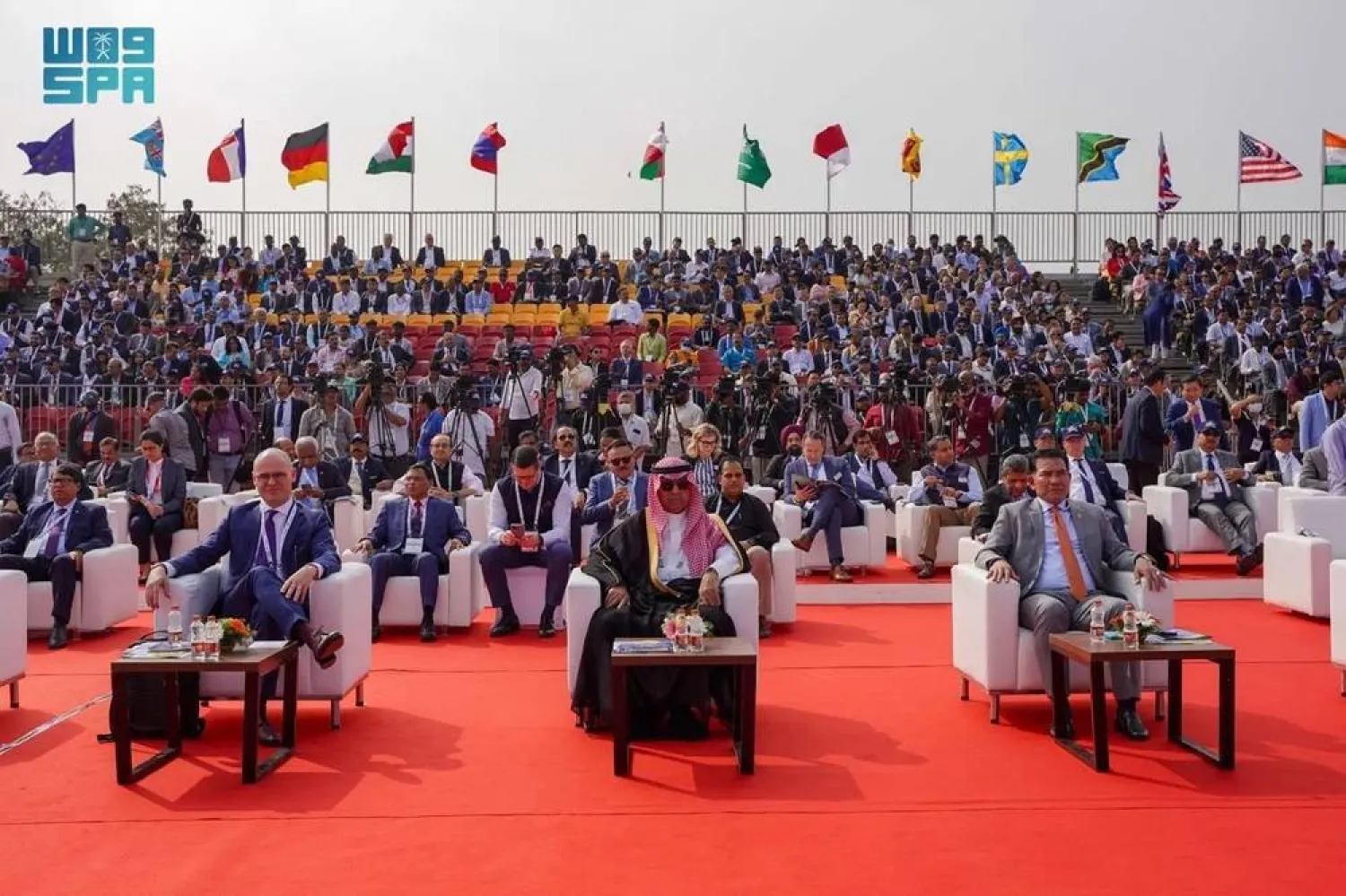Saudi Arabia, represented by the General Authority of Civil Aviation, successfully concluded on Sunday its participation in the Wings India 2024 exhibition conference.
The event was organized by the Indian Ministry of Civil Aviation in cooperation with the Federation of Indian Chambers of Commerce and Industry (FICCI). Leaders and heads of global civil aviation organizations and bodies attended the event that was held from January 18 to 21 at Begumpet Airport, Hyderabad.
During Saudi Arabia's participation, a delegation led by the President of the General Authority of Civil Aviation (GACA), Abdulaziz Al-Duailej, highlighted the vital role of the civil aviation sector in the Kingdom's national economy.
He also emphasized the promising investment opportunities offered by this sector, aligning with the Saudi Aviation Strategy's objectives. Under this strategy, the General Authority of Civil Aviation (GACA) aims to position Saudi Arabia as a leading player in civil aviation in the Middle East. Their goals include doubling passenger capacity to 330 million annually, serving more than 250 destinations worldwide, and increasing cargo capacity to 5.4 million tons.
On the sidelines of the conference, Al-Duailej participated in a ministerial session with leaders of civil aviation from around the world. The session focused on reviewing the national aviation strategy's role in supporting economic development in Saudi Arabia.
It also discussed the various opportunities for global investors based on the objectives of Saudi Vision 2030. The aim is for Saudi Arabia to become a regional aviation hub and a global logistics platform connecting three continents.
The Saudi Aviation Strategy aims to emphasize the Kingdom's pioneering role in the in the field of civil aviation in the Middle East region. It aims to attract $100 billion in investments and create a world-class travel experience for more than 330 million passengers annually by 2030. It intends to target only 10% of these 330 million passengers as transit passengers, underscoring our focus on sustainable and integrated growth.
The Wings India 2024 conference and exhibition also facilitated bilateral and one on one meetings to enhance cooperation. Al-Duailej met with the Minister of Civil Aviation and Steel of the Republic of India, Jyotiraditya Scindia, to discuss topics of mutual interest.
Additionally, he met with Minister of Infrastructure of Sweden Johan Davidsson and discussed cooperation in the field of civil aviation.
Another significant meeting took place with the Minister of Civil Aviation of Cambodia Mao Havanal to explore opportunities for direct operations between the two countries in line with the Saudi Civil Aviation Strategy. The meeting culminated in the signing of a record of consultations between Saudi Arabia and Cambodia.
As part of the activities at Wings India 2024 conference and exhibition, Eng. Imtiaz Muhammad Manzari, the Director General of General Aviation, participated in a dialogue session on "The Helicopter Industry." He highlighted the potential and prospects of helicopters and stressed the importance of developing new and diverse modes of efficient transportation.
Manzari also emphasized the need for modern technologies and infrastructure, including approved airstrips and maintenance centers, to support the safe operation of modern helicopters.
GACA's participation aimed to strengthen relationships with major international airlines and stakeholders in the aviation industry, foster an investor-friendly environment, promote the development of new routes, and introduce promising opportunities in the Saudi aviation sector.
Discussions during the event covered the latest trends, innovations, and solutions in the aviation industry, with a particular focus on air mobility, sustainability, and advanced technologies.
The Wings India 2024 conference and exhibition showcased advanced air transport solutions and their potential to transform civil aviation and open new markets for air travel in the coming decades.
The event attracted over 5,000 participants, including civil aviation authorities from multiple countries, airlines, and companies related to the civil aviation sector.
The exhibition attracted around 100,000 visitors and is recognized as one of the most significant aviation exhibitions and conferences in Asia.









